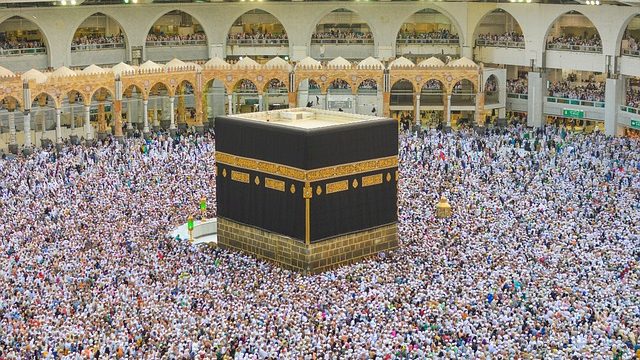Muslims perform hajj to worship God, commemorate Prophets Ibrahim and Muhammad
Hajj takes place during Dhul Hijjah, the 12th Islamic month of the year based on the lunar calendar.

Muslims are ending the pilgrimage to Mecca this week, which ends with Eid Al-Adha.
This year’s hajj season wraps up this week.
Performing hajj, the pilgrimage to Mecca, is one of the five pillars of Islam. It’s mandatory for those who can afford it to make the journey at least once in their lifetime. There are two billion Muslims in the world.
Imam Suleiman Hani of the Islamic Center of Detroit says people perform hajj as an act of worship to commemorate Prophets Ibrahim and Muhammad.
“It brings together the global Muslim community — usually several million people are there from all corners of the world…and it shows the diversity of the Muslim nation, the Muslim ummah… synchronizing a profound ritual before God,” Hani says.

Hajj takes place during Dhul Hijjah, the 12th Islamic month of the year based on the lunar calendar. During the pilgrimage, people circle around the Kaaba, the Grand Mosque in Mecca, and follow other rituals.
Hani says the rituals symbolize the Prophet Ibrahim’s willingness to sacrifice for God.
“He went through the trials he was given to sacrifice everything of this world for God for the Creator. And so this requires us as we’re doing these physical rituals to be connected spiritually, to the meaning behind them,” Hani explains.
Hani says it’s also a time for Muslims to reflect on their willingness to sacrifice to connect with God.
“We believe as Muslims in sacrificing for the sake of God, and that requires us to have self-discipline to be healthy physically, spiritually, and excellent in our character towards other people,” states Hani.
Many Muslims fast during the first 10 days of Dhul Hijjah, considered the holiest days in Islam.
Hani says that people who cannot perform the hajj this year can participate by fasting, increasing charity and sacrificing an animal to distribute its meat to those in need.
“A lot of meat and a lot of food is (sic) being donated generously to homeless shelters to different organizations and through different community centers,” Hani states.
Wednesday is Eid Al-Adha, the holiday that marks the hajj’s end. Muslims celebrate Eid with prayer, visiting family and friends, and sharing food. Eid carnivals will also be held across Southeast Michigan.
Trusted, accurate, up-to-date.
WDET strives to make our journalism accessible to everyone. As a public media institution, we maintain our journalistic integrity through independent support from readers like you. If you value WDET as your source of news, music and conversation, please make a gift today.

